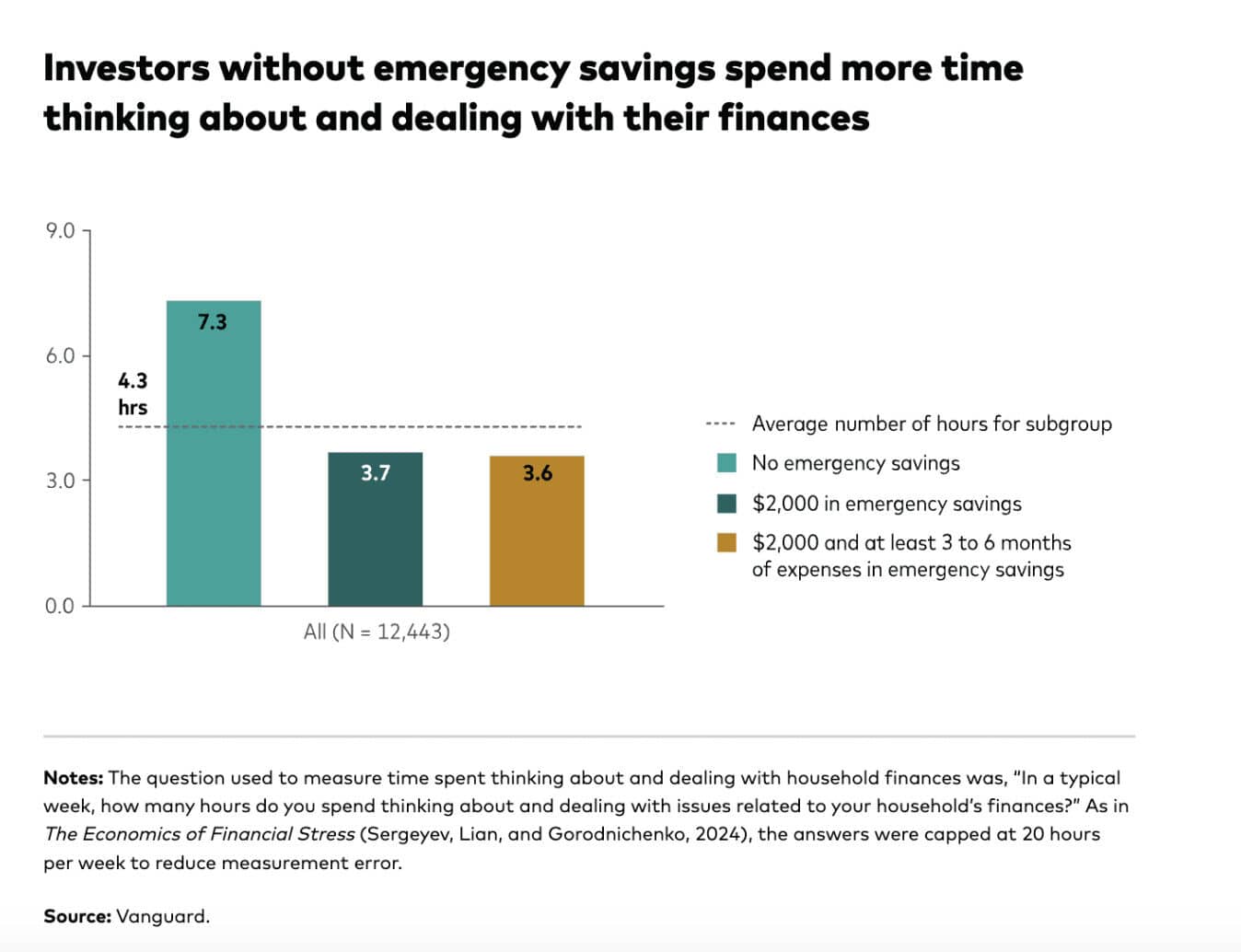A lot of financial media (including this newsletter from time to time) preaches the importance of saving. Try to find a way to save some money. And even after you’ve set aside some cash, save a little more for good measure.
But why is that? Why is it so important to save money?
I think most people would answer that they’re working toward financial independence. They save money because they want to stop working someday.
While there is no one-size-fits-all answer, a good rule of thumb for how much net worth you’ll need to retire is anywhere from 25 to 30 times your annual spending. For example, if you want to spend $100,000 a year in retirement, you’ll likely need around $3,000,000.
A lot of people save for the sole purpose of reaching that retirement number. And in that sense, saving is simply delayed gratification. You’re saving for a better life in the future.
However, the act of saving money can also have huge benefits to our lives, well before we reach some sort of financial independence number.
In a recent study published in Scientific Reports, researchers found that wealth (how much money you’ve saved) has a more positive impact on our mental health than income does:
“Whereas income represents a flow of capital, wealth represents an accumulated stock of capital. Even more than income, wealth represents more holistic access to resources that may improve or protect mental health. Wealth gaps, rather than income gaps, may better describe economic disparities, including intergenerational transfers, that drive access to resources that can then result in differential mental health…A growing literature suggests that wealth is associated with mental health above and beyond income.”
Intuitively, this makes sense to me. A 65-year-old with an income of $150,000 who has had decades to successfully build a $3 million nest egg is going to feel very different about their financial situation than a 35-year-old who also makes $150,000 but is still building a career or raising a family.
Income is a stream. Savings is a reservoir. One flows in and out. The other sits there, ready to be drawn on when you need it. It’s hard to underestimate the mental freedom you gain from having that reservoir.
Even smaller-scale savings can have a significant impact. Another study found that having less than $5,000 during the pandemic was associated with a 52% higher chance of having depressive symptoms compared to people with more than $5,000 in savings.
Before the pandemic, in 2016, a separate study showed that those with less than $20,000 in wealth had a 49% higher chance of depressive symptoms compared to those with more than $20,000.
I’ll cite one more recent study from Vanguard, which states that those with at least $2,000 in emergency savings had a 21% higher level of financial well-being compared to those without. Having an additional three to six months of expenses saved offered an additional 13% boost.

The average number of hours spent thinking about and worrying about personal finances drops by nearly four hours per week for people who have a modest $2,000 saved.
Even a modest emergency fund lets you live with more choice. It makes losing a job less catastrophic. It turns unexpected expenses into inconveniences rather than crises. It permits you to say “no” to things you don’t want to do — not because you’re completely financially independent, but because you’re secure enough to have options.
There are plenty of people who don’t necessarily want to change their current lifestyle, but want the assurance of knowing they have the option to do so.
There is a difference between working hard because you want to and working hard because you have to. Even if you’re doing the same work, the independence to do it on your own terms changes the way you feel about the work — just as sleeping in a tent is fun when you’re camping but miserable when you’re homeless.
In addition to having a growing store of assets that provides freedom and security, the actual act of saving money each month is also valuable.
The more money you save each month, the less you have left over to spend. And going back to the retirement-readiness equation above, the less you spend, the smaller nest egg you’ll need to live off in retirement.
Learning to live with less is a powerful financial skill that’s just as important to navigating life’s twists and turns as an emergency fund.
The person who makes less but needs less is wealthier than the person who makes a lot but needs more.
So, try not to think of saving as some chore that takes away from your current happiness, in favor of some future self. But rather, try to view saving as something that allows you to enjoy more of your life today.
Thanks for reading!

Jake Elm, CFP® is a financial advisor at Dentist Advisors. Jake a graduate of Utah Valley University’s nationally ranked Personal Financial Planning program. As a financial advisor at Dentist Advisors, he provides dentists with fiduciary guidance related to investments, debt, savings, taxes, and insurance. Learn more about Jake.

